Ted Cruz, the Republican junior
senator from Texas, has heard the line about how the Party needs to
become more moderate to win Presidential elections. “It is amazing that
the wisdom of the chattering class to the Republicans is always, always,
always ‘Surrender your principles and agree with the Democrats,’ ” he
told me. “That’s been true for my entire lifetime. The chattering
classes have consistently said, ‘You crazy Republicans have to give up
on what you believe and become more like Democrats.’ And, I would note,
every time Republicans do that we lose.” Cruz then offered a short
history of recent Presidential politics. Richard Nixon ran as a
conservative, twice a winner; Gerald Ford, moderate, loser; Ronald
Reagan, also twice a winner. “President George Herbert Walker Bush ran
as a strong conservative, ran to continue the third term of Ronald
Reagan, continue the Ronald Reagan revolution,” Cruz went on. “Then he
raised taxes and in ’92 ran as an establishment moderate—same candidate,
two very different campaigns. First one won, second one lost. In 1996,
you got Bob Dole; 2000 and 2004, you have George W. Bush; 2008, John
McCain; 2012, Mitt Romney. And what does the entire D.C. Republican
consulting class say? ‘In 2016, we need another establishment moderate!’
Hasn’t worked in four decades. ‘But next time will be the time!’ ”
As
the midterm elections grow closer, with the Presidential race to
follow, the Republican Party is still split roughly along the historical
lines that Cruz described. On the issues, the differences between the
two wings appear modest, but the temperamental, even geographic,
distinctions are profound. Establishment Republicans, based in
Washington, remain at some level committed to uphold rudimentary
operations of government and at least talk about broadening the Party’s
appeal. Ardent conservatives, including those in the Tea Party movement,
regard the Capitol as a cesspool of corruption, and they see compromise
as betrayal. The outcome of this struggle is uncertain, as illustrated
by the varying political fortunes of two leading establishment figures.
Mitch McConnell, the Republican leader in the Senate, easily survived a
primary challenge in Kentucky, but Eric Cantor, the Party’s leader in
the House, went down to a humiliating defeat in his primary in Virginia.
Cruz’s
ascendancy reflects the dilemma of the modern Republican Party, because
his popularity within the Party is based largely on an act that was
reviled in the broader national community. Last fall, Cruz’s strident
opposition to Obamacare led in a significant way to the shutdown of the
federal government. “It was not a productive enterprise,” John McCain
told me. “We needed sixty-seven votes in the Senate to stop Obamacare,
and we didn’t have it. It was a fool’s errand, and it hurt the
Republican Party and it hurt my state. I think Ted has learned his
lesson.” But Cruz has learned no such lesson. As he travels the country,
he has hardened his positions, delighting the base of his party but
moving farther from the positions of most Americans on most issues. He
denies the existence of man-made climate change, opposes comprehensive
immigration reform, rejects marriage equality, and, of course, demands
the repeal of “every blessed word of Obamacare.” (Cruz gets his own
health-care coverage from Goldman Sachs, where his wife is a
vice-president.) Cruz has not formally entered the 2016 Presidential
race, but he is taking all the customary steps for a prospective
candidacy. He has set up political-action committees to raise money,
travelled to early primary states, like Iowa and New Hampshire, and
campaigned for Republican candidates all over the country. His message,
in substance, is that on the issues a Cruz Presidency would be roughly
identical to a Sarah Palin Presidency.
Cruz and I were talking
in a back room at the Fort Worth Convention Center earlier this month,
during the Texas Republican Convention. A crowd of more than seven
thousand greeted Cruz’s speech there rapturously. They cheered his
anti-Washington gibes. “I spent all week in Washington, D.C., and it’s
great to be back in America,” he told the delegates. On another occasion
at the convention, Cruz noted that some people think the name of the
Washington Redskins football team is offensive. “There’s an easy way to
fix that,” he said. “You can just drop the word ‘Washington.’ ” (Cruz’s
go-to hashtag is #makedclisten.) Cruz’s convention booth, designed to
resemble a rustic Texas cabin, with a saddle out front, was the most
popular in the hall. Hundreds of people stood in line for hours to have
their photograph taken with him.
Still, Cruz’s historical
narrative of Presidential politics is both self-serving and questionable
on its own terms. Conveniently, he begins his story after the debacle
of Barry Goldwater, a conservative purist whom Cruz somewhat resembles.
Nixon ran as a healer and governed, by contemporary standards, as a
moderate, opening up relations with China, signing into law measures
banning sex discrimination, expanding the use of affirmative action,
establishing the Environmental Protection Agency, and signing the Clean
Air Act. Reagan’s record as governor of California included support for
tax increases, gun control, and abortion rights, so he sometimes
appeared less conservative than his modern reputation suggests. George
W. Bush won (if he won) as a self-advertised “compassionate
conservative.” So, at this point, Cruz’s concerted attempt to establish
himself as the most extreme conservative in the race for the Republican
nomination has not evoked much fear in Democrats. “We all hope he runs,”
one Democratic senator told me. “He’s their Mondale.” (Running against
Reagan as an unalloyed liberal in 1984, Walter Mondale lost every state
but his native Minnesota.) Such skepticism was nowhere in evidence at
the convention in Fort Worth, and at the series of talks Cruz gave he
was invariably introduced as he was at the Defense of Texas Marriage
Amendment rally: “Ladies and gentlemen, I give you the next President of
the United States!”
Cruz is conservative in appearance as well
as ideology. He dresses like an I.B.M. salesman circa 1975, in boxy blue
suits, white shirts, and red ties. His black hair is just long enough
to be slicked back. When he speaks to an audience, he usually offers a
half smile that suggests an unspoken bond with his listeners. He paces
the stage, like a motivational speaker, and he extemporizes but doesn’t
ramble. It’s easy to follow his speeches, because he sticks to an
outline, in keeping with his training as a college debater.
“Marriage
is under assault,” Cruz told the crowd. “It is under assault in a way
that is pervasive. We’re seeing marriage under assault in the courts,
including, sadly, the Supreme Court of the United States. It struck down
the California marriage laws. California had a referendum. They asked
the voters of California, ‘Do you want marriage to be a traditional
marriage between one man and one woman?’ And the voters of
California—those crazy right-wing kooks—said, ‘Yes, now that you mention
it, we like marriage to be between one man and one woman!’ Went to the
U.S. Supreme Court, and the U.S. Supreme Court said, ‘You can’t say
that,’ and struck it down. You want to know what judicial activism is?
Judicial activism is judges imposing their policy preferences on the
words of the Constitution.” (Cruz’s views on marriage equality are
widely shared within the Texas Republican Party. The John Birch Society
was allowed to have a booth at the convention, but Log Cabin
Republicans, a gay-rights group, wasn’t.)
As Cruz built to his
peroration, he said, “I’m going to encourage three very simple things.
No. 1, I’m going to encourage each and every man and woman here to pray.
If ever there was an issue on which we should come to our knees to God
about, it is preserving marriage of one man and one woman. And this is
an issue on which we need as many praying warriors as possible to turn
back the tide.
“A second thing I’ll tell you: when the President
tried to impose federal law in Utah, I introduced federal legislation,
along with Senator Mike Lee, to prevent the federal government from
setting aside the marriage laws of the states across this country. We
need to stand and defend marriage, and we need to defend the prerogative
of the citizens of Texas to determine what marriage means in the state
of Texas.
“And the third thing we need to do is we need to rise
up and we need to turn this country around,” Cruz said, to a growing
rumble of cheers. “We’ve got an election coming up in 2014, and, let me
tell you, it’s going to be phenomenal. We’re going to retake the U.S.
Senate! And I’ll tell you this: as good as 2014’s going to be, 2016’s
going to be even better!”
Cruz came to the
Senate, in 2012, and then to national prominence, through an unusual
route. Like many politicians, he is a lawyer, but his legal expertise is
of a special kind, which helps explain both his fame and his notoriety.
Before he ran for the Senate, Cruz was on his way to becoming one of
the most notable appellate advocates in the country. “He was and is the
best appellate litigator in the state of Texas,” James Ho, who succeeded
Cruz as solicitor general of the state, told me. Trial lawyers, civil
or criminal, are often brought into cases when there are compromises to
be made; much of their work winds up involving settlements or plea
bargains. But appellate litigators, like Cruz, generally appear after
the time for truce has passed. Their job is to make their best case and
let the chips fall where they may. That is the kind of politician Cruz
has become—one who came to Washington not to make a deal but to make a
point. Citing Margaret Thatcher, Cruz often puts his approach this way:
“First you win the argument, then you win the vote.”
Many
senators turn the foyers of their Washington offices into shrines to
their states. Al Franken, for instance, covers the walls with pennants
from every college in Minnesota. But in Cruz’s foyer, in the Dirksen
Building, there are only a couple of framed portraits (of Texans who
have served in the Senate) and a Dr Pepper-branded refrigerator. (Dr
Pepper is headquartered in Plano.) The room looks as if Cruz had just
moved in. Three years ago, he was an obscure long shot making his first
run for public office. As he frequently puts it, “I was at two per cent
in the polls, and the margin of error was three per cent.” Cruz ranks
ninety-fourth in seniority in the Senate. Last fall, though, he nearly
single-handedly precipitated the shutdown of the federal government.
Today, polls show Cruz in the thick of the crowded race for the 2016
Republican Presidential nomination, along with Rand Paul, Marco Rubio,
Chris Christie, and others. Last year, he won the Values Voter Summit’s
Presidential straw poll. Last month, he won the straw poll at the
Republican Leadership Conference and, not surprisingly, the straw poll
at the Texas G.O.P. convention. The speed of Cruz’s rise makes Barack
Obama’s ascent seem almost stately.
Cruz’s inner office is
dominated by a three-panel painting of Ronald Reagan in Berlin, before
the Brandenburg Gate. Reagan is Cruz’s hero, though Cruz, at
forty-three, is too young ever to have voted for him. Like Reagan, Cruz
believes in limited government, but his basis for that belief differs in
a significant way from Reagan’s. Reagan thought limited government was a
matter of political choice; Cruz believes it is a constitutional
mandate. Cruz comes to that belief from a position of unusual intimacy
with the constitutional text.
When Cruz was in his early teens,
in Houston, his parents enrolled him in an after-school program run by
Rolland Storey, a retired energy executive who wanted to instill the
values of the free market in young people. At the Free Enterprise
Institute, Storey had his young charges read Milton Friedman, Friedrich
Hayek, and other authors revered by conservatives, and then give
speeches at Rotary Clubs and similar venues around the state. “They
created a spinoff group called the Constitutional Corroborators,” Cruz
told me. “And they took five of the students, all of whom had been
involved on the free-market side, and we focussed on studying the
Constitution. So we’d meet on Tuesdays and Thursdays, for a couple of
hours each night, and study the Constitution, read the Federalist
Papers, read the Anti-Federalist Papers, read the debates on
ratification. And we memorized a shortened mnemonic version of the
Constitution.”
I asked for an example.
“TCCNCCPCC
PAWN MOMMA RUN,”
Cruz said. “Taxes, credit, commerce, naturalization, coinage,
counterfeiting, post office, copyright, courts, piracy, Army, war, Navy,
militia, money for militia, Washington, D.C., rules, and necessary and
proper.”
This was more than a parlor trick. During the past
several decades, the ideological battles over the Constitution have
often come down to the originalists, closely aligned with the
textualists, against those who believe that the Constitution also
protects some nontextual, or unenumerated, rights. The right to privacy
is the paradigmatic unenumerated right, one that is not mentioned in the
text of the Constitution but has been recognized by judges to include,
for example, a woman’s right to abortion. Cruz’s memorization trick was
an early stage in a textualist’s education. To textualists, the meaning
of the Constitution is limited to the precise terms of the document, and
nothing more.
“Ted was just an amazing speaker at fourteen, by
far the most impressive student we ever had,” Winston Elliott III, who
became affiliated with Storey’s organization when Cruz was a student and
now serves as its president, told me. “Our program is very much
committed to private property, free markets, and constitutionally
limited government. When it came to the Constitution, Rolland was a
great believer in original intent, and so the focus was very much on
what the Constitution says. We brought in a memorization expert. We
wanted them to focus on the words. Ted was just an ideal student,
because he just absorbed everything, and he came from a conservative
family in the first place.”
Cruz first achieved national notice
last September, when he staged a twenty-one-hour talking marathon on the
Senate floor against Obamacare, as part of the political offensive that
led to the government shutdown. In the best-known part of the speech,
he read Dr. Seuss’s “Green Eggs and Ham” as a bedtime story to his two
young daughters watching in Houston, who were supposedly tuned in to
C-SPAN.
(Later, he also read long excerpts from the novels of Ayn Rand, one of
his literary heroes.) Several times, he drew an analogy between the
“oppression” of Obamacare and the oppression that his father, Rafael,
faced as a young man in Cuba. “I view that from a very personal
perspective, because fifty-five years ago, when my father came from
Cuba, he was eighteen, he was penniless, and he couldn’t speak English,”
Cruz said on the Senate floor. “But he was lucky to be able to apply
for a student visa, to get to America. He was lucky to be accepted to
the University of Texas, to flee the Batista regime, where he had been
imprisoned and tortured as a kid.” Later, Cruz said, “Thank the good
Lord that when my dad was a teen-age immigrant in Texas fifty-five years
ago, how grateful I am that some well-meaning liberal did not come and
put his arm around him and say, ‘Let me take care of you. Let me give
you a government check. Let me make you dependent on the government.
Don’t bother washing dishes. Don’t bother working.’ ”
At
the Texas Republican Convention, the line for photographs with Ted Cruz
snaked through the exhibition hall. To keep those waiting from getting
restless, Rafael Cruz worked the line, shaking hands and posing for
photographs. White-haired, vigorous, and charismatic at seventy-five,
Rafael is a familiar figure to those who have followed his son’s career.
He introduces Ted’s stump speech with the boast “He will not
compromise!”
Rafael Cruz fled Batista’s Cuba for Texas in 1957
after aligning himself with the anti-Batista movement. He returned to
Cuba for just a month, in 1959, and became convinced that Fidel Castro
was even worse than his predecessor, so he settled in the United States
for good. He majored in mathematics at the University of Texas at
Austin, and met and married Eleanor Darragh, who was born and raised in
Delaware. (Rafael had two daughters from a previous marriage.) Rafael
and Eleanor started an oil-services company after moving to Calgary, in
Alberta, Canada, where Rafael Edward Cruz was born, in 1970. (Ted’s
birth in Canada, with dual American and Canadian citizenship, has raised
the question of whether he is a “native born” citizen and thus
eligible, under the Constitution, to be President. The answer is not
completely clear, but it seems likely that the Constitution does not bar
a Cruz Presidency. Recently, Ted Cruz formally gave up his Canadian
citizenship.)
Rafael and Eleanor split up a few years after Ted
was born, and Rafael moved to Houston. Six months later, Eleanor and
young Ted also went to Houston. The couple reconciled (though they
eventually divorced), and Rafael experienced a religious awakening. He
left the oil business and became a charismatic minister. Pastor Cruz, as
he is often called, is not currently affiliated with any church or
denomination, but he is a sought-after surrogate for his son on the
campaign trail. In his speeches and talks, he operates as a kind of
political id for Ted, much as Ted operates as the id of the Republican
Party. Rafael attacks Obama and the Democrats with a religious
intensity. In many of these talks, Rafael draws explicit parallels
between Fidel Castro and Barack Obama as twin betrayers of the concepts
of “hope and change.”
“It all started for us in 1980, when Ted
was nine years old,” Rafael Cruz told me. “I was involved with a group
called the Religious Roundtable, which was working with the Moral
Majority to help mobilize Christians to elect Ronald Reagan. All during
that year, we talked every night about how important it was to get rid
of this socialist-leftist President Carter and replace him with a
constitutional conservative, Ronald Reagan. I must have told Ted a dozen
times, ‘When I was in Cuba and they took away our freedoms, I had a
place to go. If we lose our freedoms here, where are we going to go?’ ”
Ted
Cruz arrived at Princeton in the fall of 1988, after graduating from
Houston’s Second Baptist High School. He quickly became friends with
David Panton, a sixteen-year-old freshman from Jamaica. They became
debating partners and roommates for the rest of their college years and
at Harvard Law. “Ted’s views today politically are almost identical to
when I met him,” Panton told me. “There’s nothing he says today that I
didn’t hear in college. It all came from his father and from the
Constitutional Corroborators.”
There are two main kinds of
college debating programs. One focusses on a single topic every year,
and the other, Cruz and Panton’s specialty, is known as parliamentary
debate. “In parliamentary debate, they don’t give you the subjects in
advance. You just have to be fast on your feet and know a lot about a
lot of different subjects,” Panton said. “Ted was the best debater in
the country, hands down. He was the No. 1 debater our senior year.”
At
Princeton, Cruz wrote a senior thesis about a topic that was obscure at
the time but later became of wide interest in the conservative legal
movement: the Ninth and Tenth Amendments. The Ninth states, “The
enumeration in the Constitution, of certain rights, shall not be
construed to deny or disparage others retained by the people”; and the
Tenth reads, “The powers not delegated to the United States by the
Constitution, nor prohibited by it to the states, are reserved to the
states respectively, or to the people.” Ever since the Bill of Rights
was ratified, near the end of the eighteenth century, the meaning of
these provisions has proved elusive to scholars and judges. Robert Bork
compared the Ninth to an inkblot. Liberal scholars have generally viewed
the Ninth Amendment, in particular, as a guarantee that the
Constitution represents a floor for, not a ceiling on, the rights of
individuals. In his thesis, Cruz wrote that he intended to “elaborate
upon a conception of the Ninth and Tenth Amendments which revitalizes
the Founders’ commitment to limiting government, to restraining the
reach of our none-too-angelic leaders.” The conclusion is debatable, but
the level of erudition in the thesis is extraordinary, especially for a
twenty-one-year-old who had not yet gone to law school.
The
thesis was so good that the professor who supervised Cruz’s work, Robert
George, decided to play a joke on him. “When I was grading it, I
dog-eared the first page and wrote ‘C-plus’ on it, so it was the first
thing he’d see,” George told me. “Then inside I wrote, ‘Just kidding—A.’
I thought it might do Ted some good to wonder for a second whether he
really was the smartest guy in the room.” A widely respected
conservative legal philosopher, known for his opposition to same-sex
marriage and abortion rights, George played godfather to right-leaning
students on campus. “It’s an occupational hazard for academics like me
to assume that our best students are going to become academics
themselves. And so I was sure that Ted was going to become a professor.”
But Cruz was already on his way to Harvard Law School.
“He came
to class with his right hand in the air and he kept it in the air for
the whole semester,” Alan Dershowitz, who taught Cruz’s criminal-law
class, told me. Cruz and Panton sat next to each other, and both
disagreed with most of what Dershowitz said throughout the semester.
“They were pro death penalty, they questioned the exclusionary rule, and
they were both completely brilliant.” (Panton became the second black
president of the
Harvard Law Review, after Barack Obama. He now
works in private equity, in Atlanta.) At Harvard, Cruz’s ambitions came
into focus. “He was going to clerk for Michael Luttig, on the Fourth
Circuit, who was the big feeder for the conservative Justices on the
Supreme Court, and then clerk on the Court,” Dershowitz said. “And of
course that’s exactly what he did.”
From 1996 to 1997, Cruz
clerked for Chief Justice William H. Rehnquist, and again he impressed
both ideological allies and adversaries with his intelligence and
persuasiveness. “We became friends on the first day of our clerkships,”
Neal Katyal, who clerked for Stephen Breyer and went on to become Acting
Solicitor General in the Obama Administration, said. “We spent the next
year arguing about just about everything, especially the death penalty,
which Ted definitely supported. He was conservative, of course, but he
was not an ideologue. He knew how to make arguments based on the law. He
was obviously already a very good lawyer.”
After his
clerkships, Cruz faced the first genuine crossroads of his career. Until
then, he had followed an élite path from the Ivy League to coveted
clerkships. Now he had to decide what kind of lawyer he was going to be.
Cruz turned down an offer from a big firm (with a big signing bonus)
and joined a boutique firm then known as Cooper & Carvin, in
Washington.
“When I was clerking for the Chief, Chuck Cooper and
Mike Carvin came and recruited me,” Cruz told me. Cooper was a former
Rehnquist clerk. At the time, the firm was nine months old and had only
six lawyers. Cruz was the first new associate the partners recruited.
Cooper and Carvin had served in senior roles in the Reagan Justice
Department, and they created a firm that combined their passion for
high-level litigation with conservative politics. Cooper has long been
the outside counsel to the National Rifle Association, and, he recalled,
“Ted was basically my lieutenant on all N.R.A. matters.” He helped
Cooper prepare his testimony before the House Judiciary Committee in
favor of the impeachment of Bill Clinton. Cruz also worked on
Representative John Boehner’s civil lawsuit against Representative Jim
McDermott, a Democrat, for illegally leaking the recording of a phone
call involving Newt Gingrich. (Boehner won the case, and McDermott was
forced to pay damages, including more than a million dollars of
Boehner’s legal fees.) Carvin, who has since moved on to another firm,
said, “Ted was the best law partner I ever had, but he was a junior
associate.” Soon enough, though, it became clear that Cruz’s ambitions
extended beyond success as a private lawyer. “Ted had this obvious
burning interest in matters of important public policy,” Cooper
recalled. “He had the obvious tools to succeed at the highest levels of
politics. It was clear to me that it was at least in the back of his
mind, and I encouraged it.” (Cooper later became best known for leading
the legal defense of California’s Proposition 8, which banned same-sex
marriage, before the law was ultimately overturned.)
And so, in
1999, Cruz went to work as a domestic-policy adviser on the George W.
Bush Presidential campaign. “I essentially had responsibility for all
the policy that touched on law,” Cruz told me. “So we all divided up the
issues, but anything law-related fell under my bailiwick. The campaign
was a year and a half of incredibly intense eighteen-to-twenty-hour
days. The best part of the campaign was I met my wife. We were one of
eight marriages that came out of the campaign, so I tell young people,
‘If you want to meet your spouse, go join a political campaign.’ ”
(Heidi Cruz lives in Houston with their daughters.)
When the
result of the 2000 campaign devolved into a legal struggle over the vote
in Florida, Cruz was well situated to play an important role. By the
Thursday after Election Day, he was in Tallahassee. “Through an odd bit
of serendipity, it happened that I was the only practicing lawyer, and,
in particular, constitutional litigator, who had been on the full-time
campaign team,” Cruz told me. “One of the realities of the recount and
life is that lawyers and political folks don’t really speak the same
language. By the accident of being in that place I found myself, there
was sort of a small leadership team that consisted of Jim Baker and Josh
Bolten and Ted Olson and George Terwilliger and Ben Ginsberg and me.
And I’m twenty-nine years old, this kid, and all of these other folks
are Cabinet members and masters of the universe.” Ginsberg, the national
counsel to the Bush campaign, and his associates set up seven teams of
lawyers to address the sprawling controversies generated by the recount,
and Cruz was the only lawyer who served on all seven. His job was to
encourage communication and assure consistent positions.
“I’ve
been amused at some of the subsequent descriptions of Bush versus Gore,
because they sort of described us as this fine-oiled machine with a
careful strategy,” Cruz said. “It was one tiny notch slightly below
utter chaos.”
Cruz’s initial assignment was to assemble a legal
team. His first call was to his former mentor Carvin, who wound up
representing Bush before the Florida Supreme Court. Cruz’s second call
was to a Washington lawyer named John Roberts. “John had been a friend
and a Rehnquist clerk—I’ve known John a long time,” Cruz said. “Everyone
we called, without exception, dropped everything and came down. And for
a young lawyer, I mean, it was a breathtaking and humbling experience
to get the chance to carry the bag and work alongside some of the most
talented lawyers in the country.”
Conservatives
have long denounced liberal judges and lawyers for judicial
activism—that is, for using the courts to overrule the work of the
democratically elected branches of government. Roe v. Wade, which
invalidated state laws banning abortion around the country, is the
consummate act of liberal judicial activism. In the eighties and
nineties, however, as Reagan nominees began to dominate the federal
judiciary, conservatives began to use the courts for their own political
ends as well. Conservatives like Cruz never stopped denouncing liberals
for their efforts to use the courts to promote their ideological
agenda, even as they began to do much the same thing themselves. The
heart of Cruz’s legal career was a sustained and often successful
undertaking to use the courts for conservative ends, like promoting the
death penalty, lowering the barriers between church and state, and
undermining international institutions and agreements.
In the
nineteen-nineties, several states created the position of solicitor
general, a chief appellate advocate, modelled on the one in the United
States Department of Justice, which represents the federal government
before the Supreme Court. The Texas job was started in 1999, when John
Cornyn was the state attorney general. (Cornyn is now Cruz’s senior
colleague in the Senate.) But when Greg Abbott became attorney general
of Texas, in 2002, he decided to expand the responsibilities of the
solicitor general beyond simply handling appeals in cases involving the
state. Abbott had served on the Texas Supreme Court and developed
strongly conservative views on legal issues. “I wanted someone who had
the capability to handle appellate arguments in court, but I wanted to
do so much more,” Abbott told me. “I wanted Texas to be a national
leader on the profound legal issues of the day. I wanted us to be able
to have a larger footprint, a larger impact.”
Though Cruz was
only thirty-two, he persuaded Abbott that he was up to the job. In 2003,
he moved to Austin. “We wanted Ted to take a leadership role in the
United States in articulating a vision of strict construction. I look
for employees with batteries included,” Abbott said. “Ted was
supercharged and ready to go.” In effect, he asked Cruz to roam the
country in search of cases that might advance the Constitutional agenda
that Cruz had first embraced as a teen-ager. Sometimes Texas was an
actual party to the cases Cruz argued, and sometimes he simply
volunteered to write friend-of-the-court briefs for causes that he and
Abbott supported. They intervened in cases supporting gun-owners’
rights, states’ rights, and the right to religious expression in public
places. In one high-profile case, Cruz wrote the brief that persuaded
the court to approve a monument of the Ten Commandments outside the
state capitol, in Austin. (Abbott argued that case.)
In just
over six years, Cruz argued nine cases before the U.S. Supreme Court,
more than any other Texas lawyer during this period and more than all
but a few lawyers in the country. In addition, he filed dozens of briefs
in federal and state appeals courts. In his arguments before the high
court, Cruz won five cases and lost four, but that understates the
magnitude of his success. The cases he lost were rather minor; in one of
them he appeared as a friend of the court. The cases he won had more
drama and importance. The most notable, from 2008, began, as Cruz
recounted to me, when “two teen-age girls who were walking home one
night stumbled into a gang initiation and were horribly gang-raped and
murdered. One of the most brutal crimes that shocked the conscience of
the city of Houston. Ernesto Medellín was one of the leaders of the
gang, and he was apprehended several days later, and he confessed to it
right away. His confession was one of the most chilling documents I’ve
ever read, handwritten, where he describes bragging about raping these
little girls. He describes showing off his bloodstained clothes. He
describes keeping, as a trophy of the night, one of the little girls’
Mickey Mouse watches. This was an unrepentant murderer. He was
convicted, he was sentenced to death, and then the case took a strange
turn.”
The World Court, which is the judicial arm of the United
Nations, issued a directive to the United States to reopen the cases of
Medellín, who was Mexican, and fifty other Mexican nationals who were on
death row. After their arrests, none of the defendants had been offered
the consular services of the Mexican government, a right that the
United States was treaty-bound to honor. In a crucial twist, the
Administration of George W. Bush agreed with the World Court judgment.
The Justice Department asserted that the cases, including Medellín’s,
should be reopened, because the defendants had not been granted their
rights under the treaty. As both a legal and a political matter, Texas’s
position looked weak. How could Abbott (and Cruz) take on a President
of the United States who also happened to be a fellow-Republican and
fellow-Texan? And how, in any event, could the state of Texas overrule a
judgment of both the United States government and the World Court?
“In
both law and politics, I think the essential battle is the meta-battle
of framing the narrative,” Cruz told me. “As Sun Tzu said, Every battle
is won before it’s fought. It’s won by choosing the terrain on which it
will be fought. So in litigation I tried to ask, What’s this case about?
When the judge goes home and speaks to his or her grandchild, who’s in
kindergarten, and the child says, ‘Paw-Paw, what did you do today?’ And
if you own those two sentences that come out of the judge’s mouth, you
win the case.
“So let’s take Medellín as an example of that,”
Cruz went on. “The other side’s narrative in Medellín was very simple
and easy to understand. ‘Can the state of Texas flout U.S. treaty
obligations, international law, the President of the United States, and
the world? And, by the way, you know how those Texans are about the
death penalty anyway!’ That’s their narrative. That’s what the case is
about. When Justice Kennedy comes home and he tells his grandson, ‘This
case is about whether a state can ignore U.S. treaty obligations,’ we
lose.
“So I spent a lot of time thinking about, What’s a
different narrative to explain this case? Because, as you know, just
about every observer in the media and in the academy thought we didn’t
have a prayer. This is a hopeless case.”
Cruz decided to change
the narrative into one about the separation of powers. He refashioned
the case from a fight between Texas and the United States to one between
the executive branch and the legislative branch of the federal
government, with Texas advocating for Congress. He argued that the
President could not order Texas to reopen the cases without the specific
authorization of Congress. Cruz duelled with Stephen Breyer and other
skeptical Justices for well over the allotted thirty minutes. Breyer
ribbed Cruz: “As I read the Constitution, it says all treaties made, or
which shall be made, under the authority of the United States shall be
the supreme law of the land, and the judges in every state—I guess it
means including Texas”—the audience laughed—“shall be bound thereby.”
“Certainly,
Justice Breyer,” Cruz answered. “Texas, of course, does not dispute
that the Constitution, laws, and treaties are the supreme law of the
land.” But, he went on, the President’s order, in this case, was none of
these. The questioning of Cruz became so raucous that, at one point,
Justice John Paul Stevens felt compelled to interject, “You said there
are six reasons. . . . I really would like to hear what those reasons
are without interruption from all of my colleagues.” Cruz won the case,
six-to-three, with Stevens joining the Court’s conservatives. In another
case, a major challenge to Texas’s 2003 electoral redistricting on the
ground that it discriminated against minorities, the number of
plaintiffs before the Court was so large that Cruz was allowed to file a
hundred-and-twenty-three-page brief in response, well above the usual
page limit. He won that case as well.
Cruz became so comfortable
before the Justices that he even employed a touch of humor, which is
always risky at the Supreme Court. In 2008, the Justices invited Cruz to
argue in support of Louisiana’s position that the Constitution
permitted the execution of an individual who raped a child. (To be asked
to argue a case as a friend of the court is itself a significant honor
for a lawyer.) At one point, Justice Stevens asked whether any country
had ever made punishments for rape more draconian. “It’s interesting if
you look at the history in England,” Cruz said. “Blackstone actually
talks about how rape under Saxon law was punishable by death, and then
there was a period—1285—where the punishment was ‘relaxed’ to loss of
the eyes and testicles. That was William the Conqueror’s kinder, gentler
version.” Laughter followed. Still, the court ruled that Louisiana
could not execute the defendant.
In 2010, Greg
Abbott was planning on running to succeed Rick Perry as governor, and
Cruz decided to step out on his own and run for attorney general. By
this point, Cruz had reached such a level of prominence as solicitor
general that he had basically cleared the field to take over for his
boss. But Perry decided to run for reëlection and, as a result, so did
Abbott. Cruz stepped down as solicitor general and joined a law firm in
Houston. In short order, another opportunity presented itself: Kay
Bailey Hutchison was retiring from the U.S. Senate, opening up a seat in
the 2012 election.
Cruz flew to Washington for a conference of
the Federalist Society for Law and Public Policy Studies. There he
arranged to meet with Mike Lee, a newly elected senator from Utah. The
two had much in common. Both were former Supreme Court clerks and both
had an intense interest in constitutional law. (The son of Rex Lee, who
was Solicitor General in the Reagan Administration, Mike Lee clerked for
Samuel Alito during his first year on the Court.) “At that point, I
felt like I had already known Ted, because three of my co-clerks were
Princeton undergrads, and he was a legendary debater,” Lee recalled.
Cruz and Lee hit it off. “He and I see a lot of things the same way,
through a similar lens. As someone who has studied the Constitution
throughout his entire life, he understands the importance of federalism
and separation of powers. As a former Supreme Court clerk and appellate
litigator, he is very aware of how the courts look at things. But he
also knows that we can’t leave every constitutional question to the
courts. The legislative branch has to follow the Constitution, too.” The
two men took a long walk around the Capitol grounds. By the end, Lee
had agreed to endorse Cruz for the Senate.
David Dewhurst, the
lieutenant governor of Texas (an especially powerful position there),
was far and away the best-known and best-financed candidate for the
Senate seat in 2012. But Cruz, calling himself a “constitutional
conservative,” rallied the Tea Party movement to his side and battered
Dewhurst as a conciliator and a defender of the status quo. Tea Party
favorites like Sarah Palin, Rick Santorum, Rand Paul, and Jim DeMint
swarmed the state for Cruz, and conservative political-action committees
like the Club for Growth bought millions of dollars’ worth of
advertisements on his behalf. Dewhurst finished ahead of Cruz in the
first round of voting—forty-five per cent to thirty-four per cent—but
then Cruz won the runoff, with fifty-seven per cent of the vote. The
general election was a formality against Texas’s moribund Democratic
Party.
Cruz made his influence felt in the
Senate even before he took office. He was invited to join the weekly
lunch of the Senate Republican caucus on December 4, 2012, which
happened to be the day the full Senate was debating the United Nations
treaty on the Rights of Persons with Disabilities. The treaty seemed
fairly uncontroversial, but Cruz, as the tribune of the Tea Party
movement, was opposed. “I was a newly elected senator who hadn’t even
been sworn in yet, but I did just pass on, having just come from the
campaign trail, that issues of U.S. sovereignty resonate powerfully with
the American people,” Cruz told me. The issues in the treaty were
broadly similar to those in the Medellín case, in that they involved the
interplay between American law and international institutions.
Dick
Durbin, the Illinois Democrat who is the assistant majority leader,
recalled Cruz’s influence on Republicans at that lunch. “These people
walked out scared as hell,” he said. “And I thought, This guy is wasting
no time to flex his muscles over there.”
As part of the effort
to pass the treaty, supporters brought Bob Dole, the widely respected
former Republican majority leader, to the Senate floor, in a wheelchair,
to lobby for passage. But Dole, and the treaty, failed. John McCain
told me, “It was the most embarrassing day in my time in the Senate, to
force Bob Dole to watch that.”
Cruz explained, “I personally
have been passionate for a long, long time about protecting U.S.
sovereignty, that our laws should reflect American values, American
mores, and not be governed by the laws or tribunals of foreign nations
or foreign institutions. I urged my soon-to-be colleagues to protect
U.S. sovereignty, and ultimately they did so.”
On another early
trip as a senator-elect, Cruz made a speech to the Federalist Society,
to which he has since returned several times. Founded in 1982, the
society is a forum for discussion of conservative legal ideas. It takes
no formal positions on issues, and members don’t agree with each other
on every topic, but it has long operated as the network for potential
Republican judicial nominees and executive-branch officials. In
practice, the Federalist approach has meant an “originalist” view of the
Constitution, which, in turn, reflects the priorities of the modern
Republican Party—including an expansive view of an individual’s right to
bear arms under the Second Amendment, a rejection of constitutional
protections for a woman’s right to choose to have an abortion, a porous
barrier between church and state, and a narrow conception of the power
of the federal government to intervene in the economy. Dozens of judges
have brought a Federalist orientation to the bench in recent years; Cruz
is the first politician, and the first prospective President, to put
their ideas at the center of national debate. “Like many people in this
room, I’ve grown up with the Federalist Society,” he said soon after he
arrived in Washington. “This has been my home for my entire adult life,
my entire professional life.” It was at a later Federalist Society
dinner that Cruz was inspired to write a series of reports on what he
found to be abuses of power by the Obama Administration. The idea came
from another prominent conservative lawyer, Justice Samuel Alito, who
was the speaker that evening.
Cruz’s facility with
constitutional argument draws admiration even from those who do not
share his views. “Ted is able to use erudite constitutional analysis
with politically appealing slogans—that’s a rare talent,” Walter
Dellinger, the former acting Solicitor General in the Clinton
Administration, who has debated Cruz, told me. “The only problem is that
Ted’s view of the Constitution—based on states’ rights and a narrow
scope of federal power—was rejected at the Constitutional Convention in
Philadelphia, and then was resurrected by John C. Calhoun, and the
Confederates during the Civil War, when it failed again. It’s still
around now. I think it’s wrong, but Ted does a very sophisticated
version of that view.”
Since taking office,
Cruz has had little use for the traditional political norms of the
Capitol, as he showed when he signed a fund-raising letter for the
Senate Conservatives Fund, which aims to defeat incumbent Republican
senators whom it deems unduly moderate. Challenged by his colleagues in
the Republican caucus, Cruz vowed to refrain from targeting incumbents.
But then it happened again, with the Madison Project, which also
supports candidates who challenge Republican incumbents. “It’s time to
elect some conservatives who won’t run from a fight!” Cruz wrote,
according to Politico. (Cruz says the letter went out without his
permission.) Just a few months after Cruz had taken office, McCain was
referring to him, in public, as a “wacko bird.” (The insult still
stings. Introducing her husband to the delegates at the Republican
convention in Fort Worth, Heidi Cruz denied that he was a wacko bird.)
By
one reckoning, the twenty-one-hour speech Cruz mounted against
Obamacare last September was his consummate wacko-bird moment. At that
time, the House and the Senate were weighing a continuing resolution,
which would keep the federal government funded and open. The Republican
House, with Cruz’s encouragement, had passed a budget that denied all
funds for the Affordable Care Act. It was clear that this budget would
never pass the Democrat-controlled Senate and certainly never be signed
by the President. So Cruz’s speech merely delayed the inevitable—the
passage of a budget that included money for the bill.
There are
generally two kinds of senators: those who legislate and those who run
for President. Cruz’s speech, and its aftermath, locked down his status
in the second category. John Cornyn, his Texas colleague, opposed Cruz’s
efforts on the shutdown. “Ted is very smart and very articulate and he
has a huge following, but the question is whether what he’s doing is
going to help us be a majority party,” Cornyn told me. “The great thing
about the Senate is that you are a free agent; you can follow your
conscience. But if you want to be effective you can’t get your way a
hundred per cent of the time. We need to think about the eighty-twenty
rule. We need to get back to the idea that it doesn’t always have to be a
hundred per cent our way.”
Cruz takes a different view of his
role in the shutdown. While the government was closed, the Obamacare Web
site, healthcare.gov, made its disastrous début, and the polls turned
against the Democrats. Cruz felt that his political argument, not the
failure of the Web site, produced the political turnaround. “Many voices
in Washington say the fight that we had last fall was not successful,”
Cruz told me. “Like any good litigator, at times you think of a battle
as a long-term battle. You don’t always accomplish everything in the
first skirmish. As a consequence of millions of people last summer and
fall getting engaged in that battle, I believe we dramatically elevated
the national debate over the harms of Obamacare. And today Democrats are
running scared, and the prevailing wisdom is Republicans are quite
likely to win control of the Senate because of Obamacare.”
In
any event, Cruz still glories in flouting the conventions of senatorial,
even Republican Party, courtesy. Earlier this year, Mitch McConnell,
the Republican leader in the Senate, made a procedural deal with the
Democrats so that fifty votes, not sixty, would be needed to raise the
debt ceiling. The lower threshold would allow senators like McConnell,
as well as John Cornyn, to vote against raising the debt ceiling, which
would help them in their primaries against Tea Party challengers. By
objecting, Cruz forced some of his Republican colleagues to make a
tough, politically risky vote.
“I have to tell you that there’s
nothing that I’ve done in my year and a half that enraged my colleagues
more,” Cruz said of his debt-ceiling maneuver. “The Republican
leadership asked every Republican senator to affirmatively consent to
lowering the threshold to taking up the debt ceiling from sixty votes to
fifty votes. And the argument was twofold: No. 1, if we do so, it will
pass, and we want it to pass. That is the outcome we want. And, No. 2,
if we don’t, the Democrats can pass it on their own. Every one of us can
vote no. We can go and tell our constituents we opposed the thing—we
just consented to allow it to happen. And my response was simply to say
that there is no universe in which I can consent to lowering the
threshold and making it easier for Harry Reid to add trillions of debt
to our nation.” To Cruz, McConnell’s procedural legerdemain defined what
was wrong with Washington. “It’s part of the reason why I’ve said many
times that I think the biggest divide we’ve got in this country is not
between Republicans and Democrats,” he said. “It’s between entrenched
politicians in Washington in both parties and the American people.”
The
way Cruz characterizes the divide in American politics—Washington vs.
the people—is demonstrably incorrect. Far more significant than the
conflict between the capital and the people is the ideological clash
between left and right. Cruz’s rhetoric is mostly an exercise, in the
manner of Sun Tzu, of framing the narrative in the most advantageous
way. “Anti-Washington” is better positioning than “doctrinaire,” but
that is what Cruz is, even compared with his likely rivals for the
Republican Presidential nomination. Unlike Marco Rubio, Cruz opposes
comprehensive immigration reform; unlike Rand Paul, Cruz embraces the
confrontational foreign policy associated with the George W. Bush
Administration. Cruz speaks of challenging “the corrupt bipartisan cabal
in Washington,” but what he’s really proposing is a purification
ritual, the fulfillment of a conservative agenda that has moved well to
the right of that of his hero Ronald Reagan. The only Republicans he
wants to challenge are those who want to coöperate or compromise with
Democrats. As he told the delegates in Fort Worth, Cruz wants to
“abolish” the Internal Revenue Service, “audit” the Federal Reserve
(though it’s not clear what that means), and, of course, repeal the
Affordable Care Act.
Cruz’s sincerity in these goals is beyond
question. When he was solicitor general of Texas, he had a piece of
advice for the lawyers on his staff. “I tried to stress to every lawyer
in the office that if any lawyer from the S.G.’s office stands in front
of the judge and says, ‘The law is X and the facts are Y,’ then that
judge would always, always trust that we are levelling with them and
telling the truth.” He’s approached politics the same way. “Since I
became a senator, a year and a half ago, I’ve kept two promises to the
people of Texas,” he said. “I have endeavored to do what I said I was
going to do and I have always told the truth. It says something about
Washington that those are perceived as radical acts.”
♦


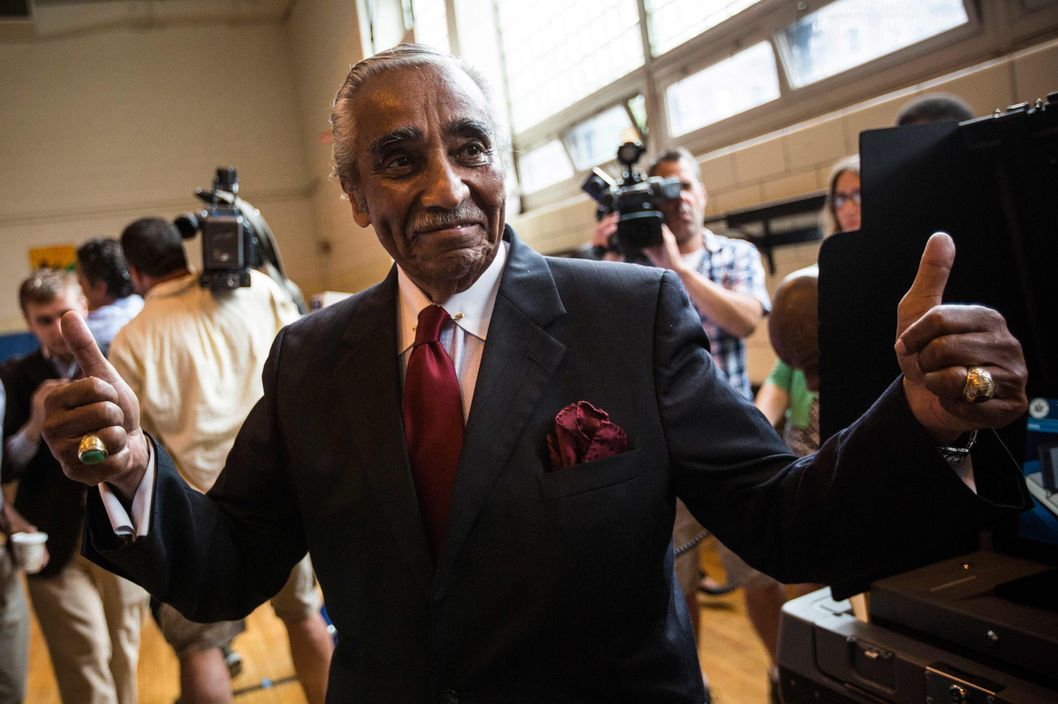
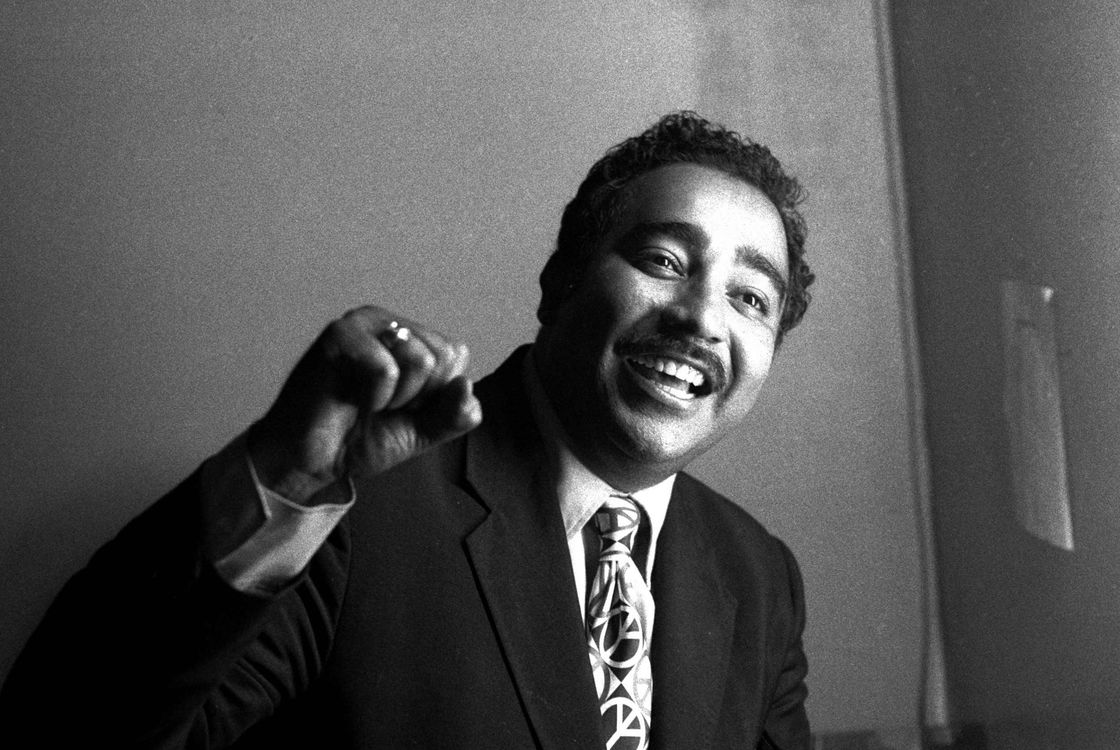
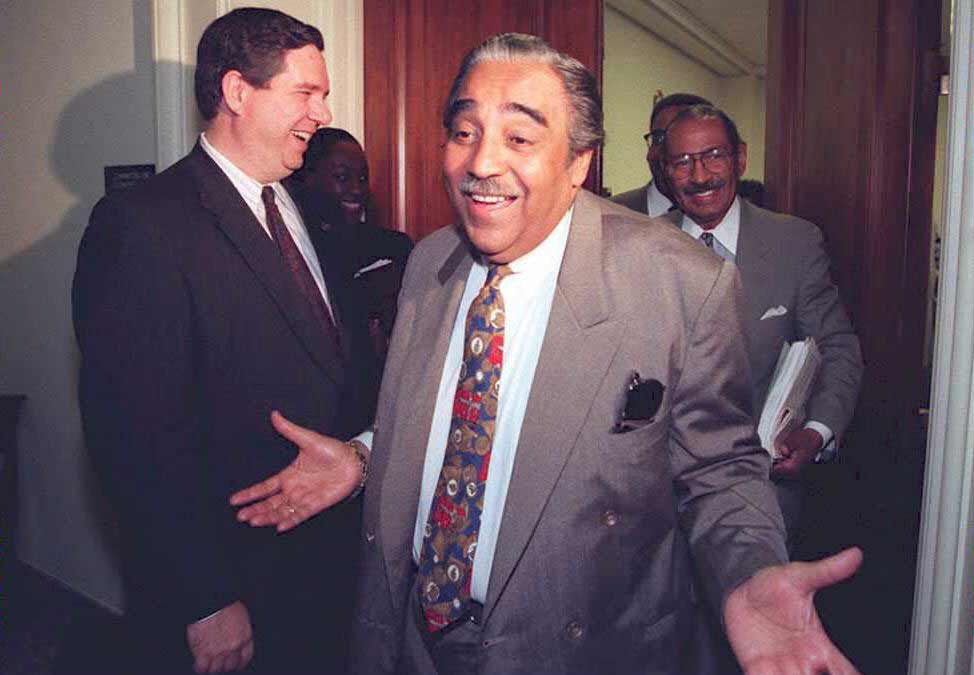
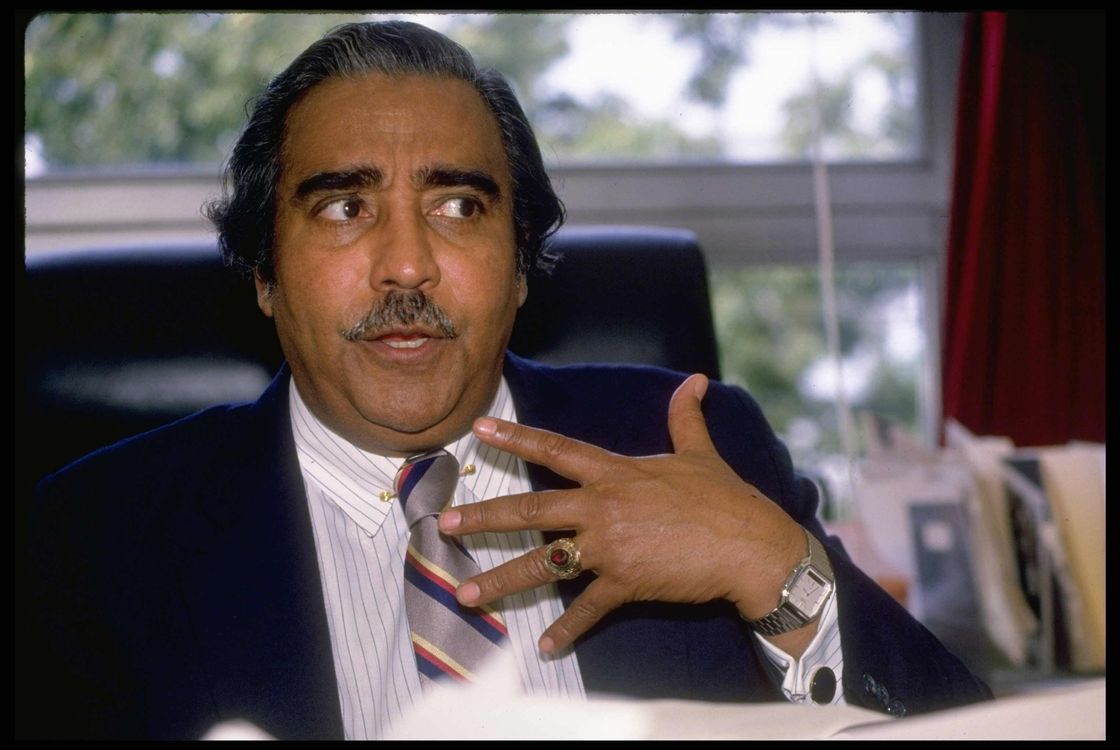

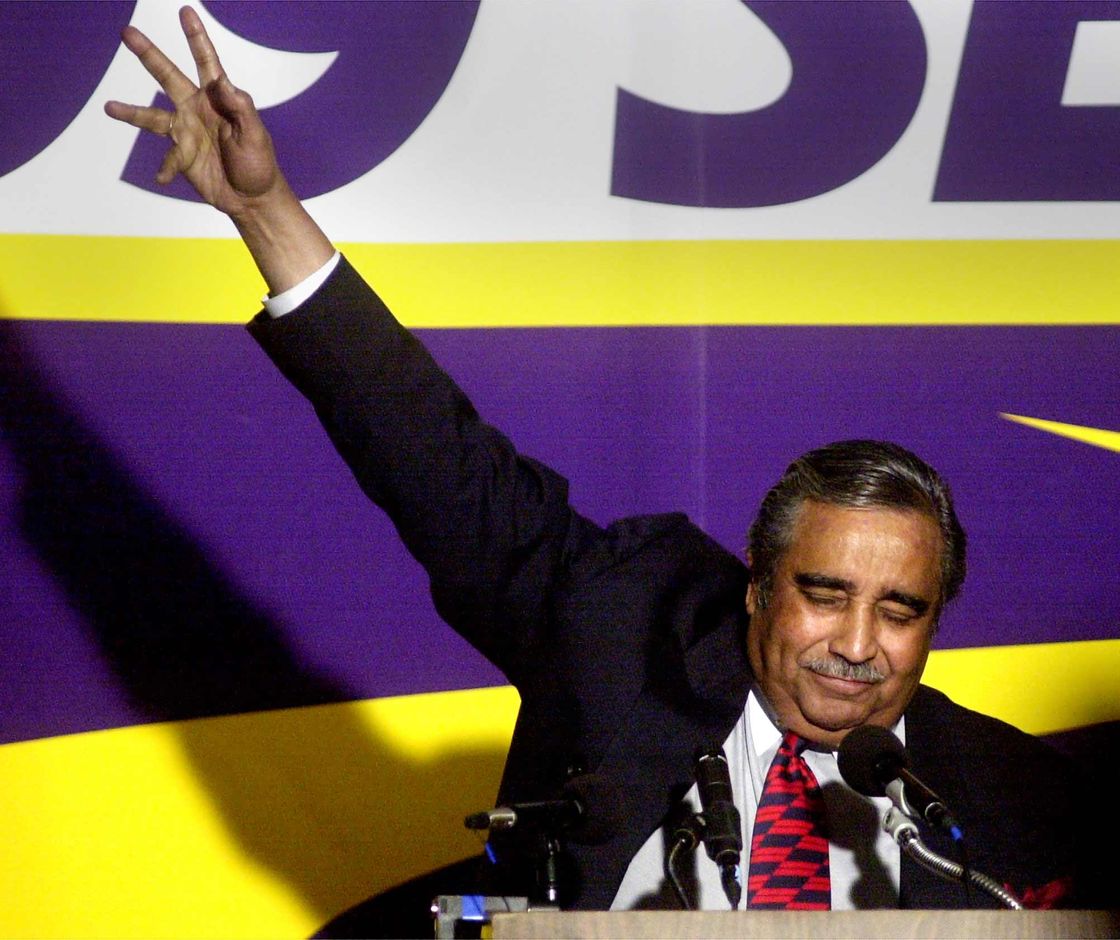
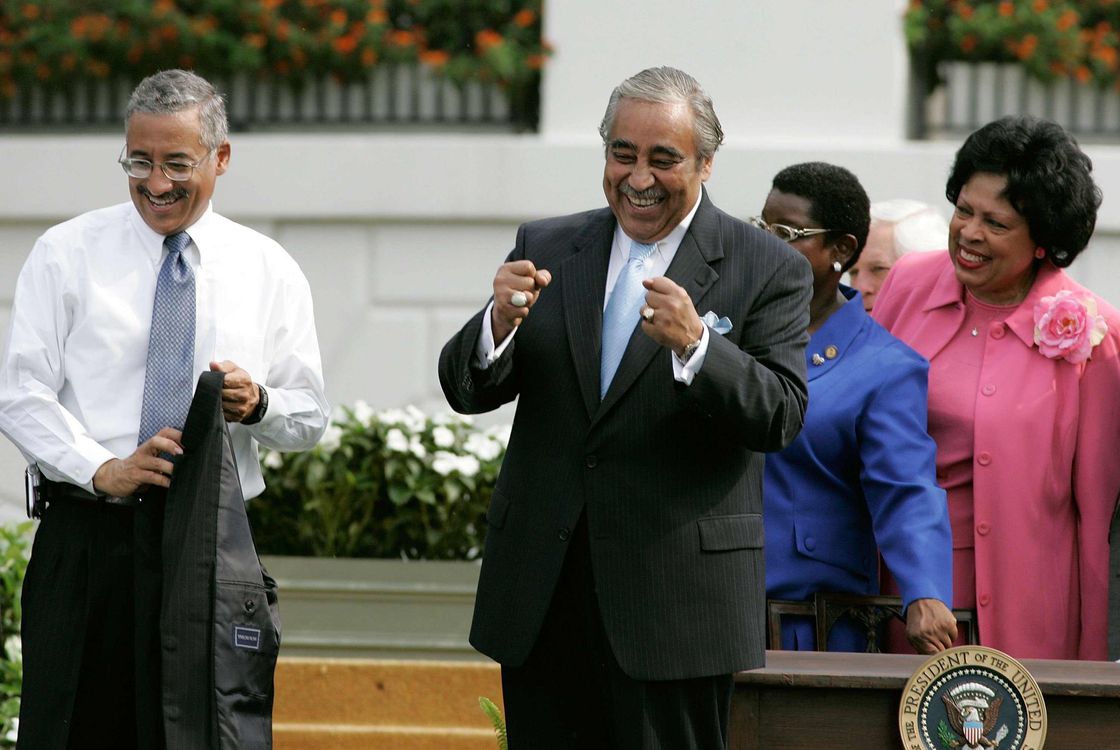
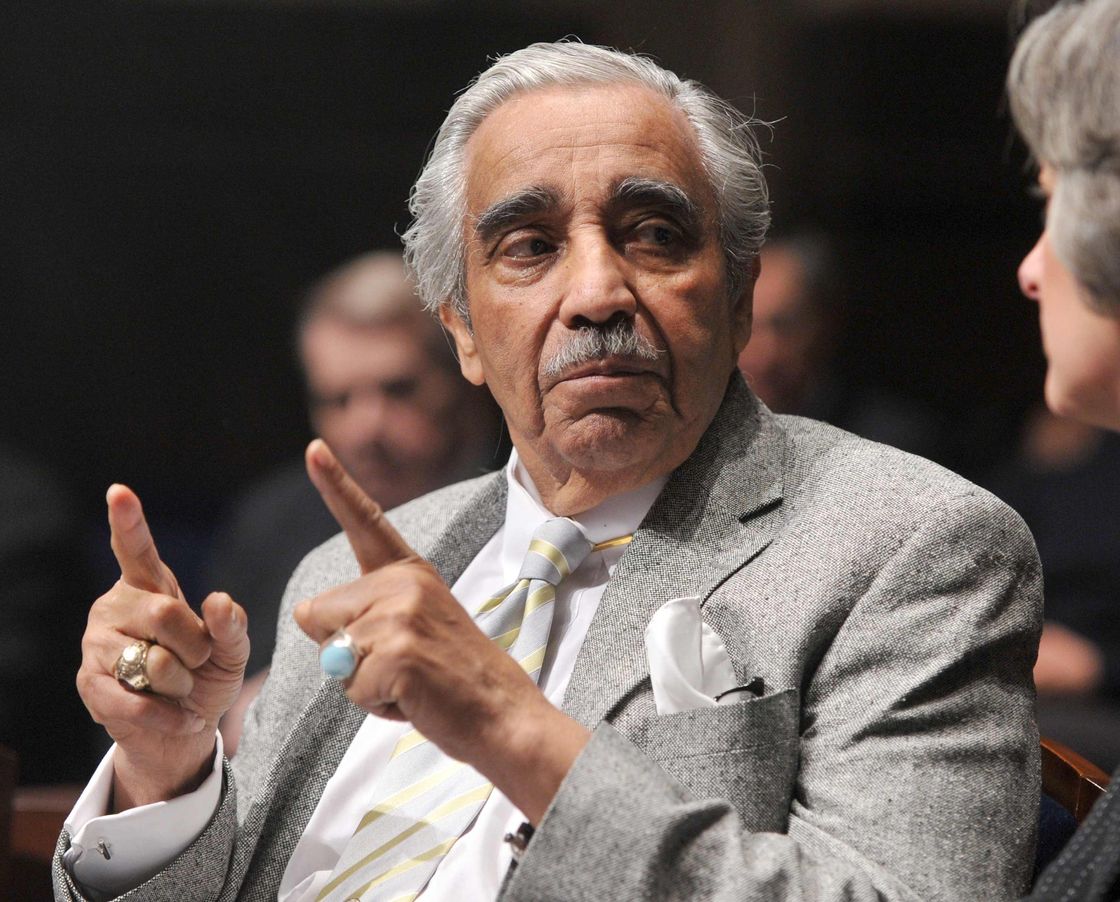
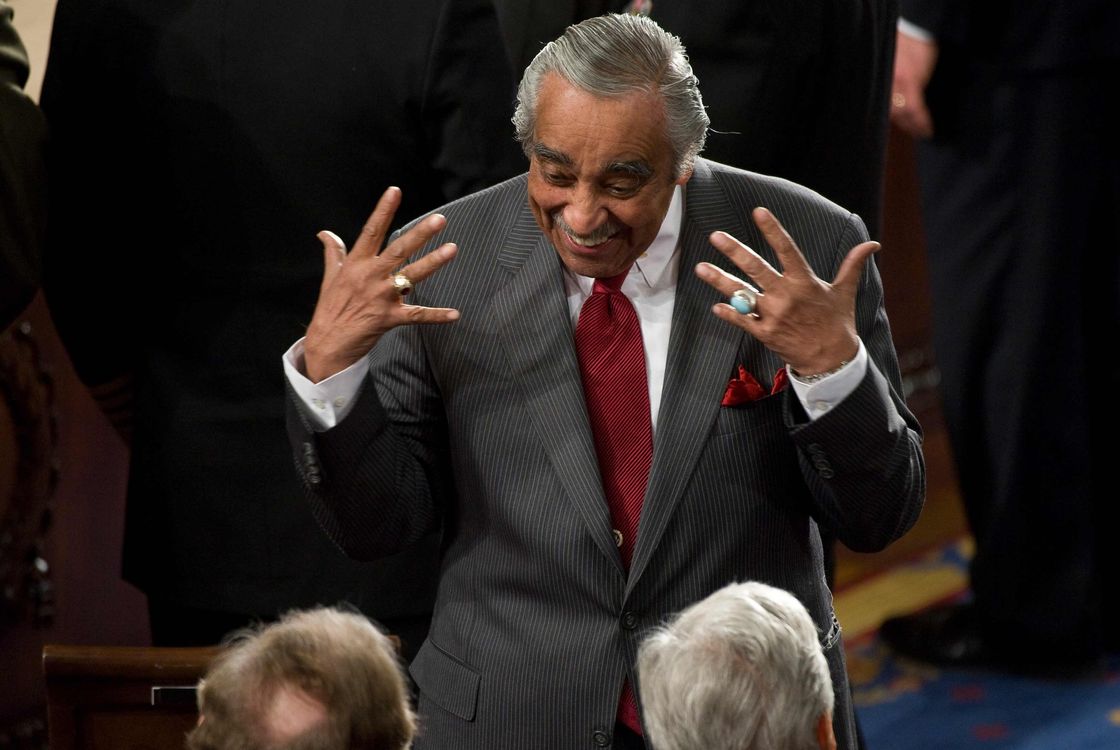
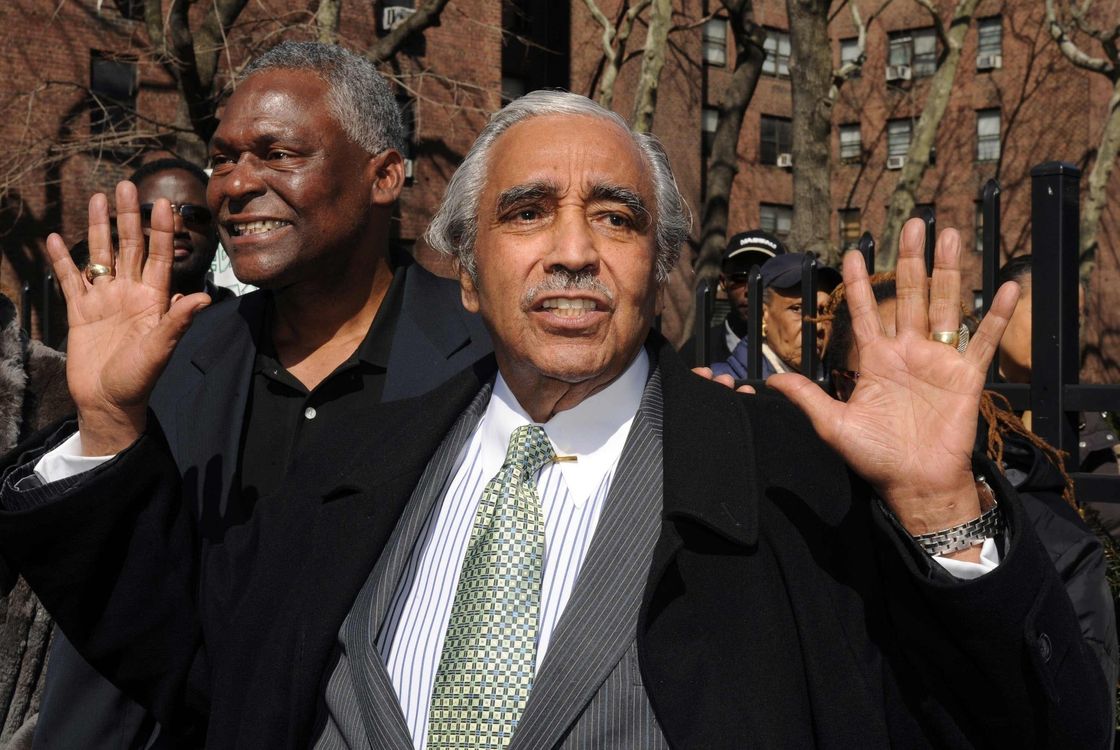
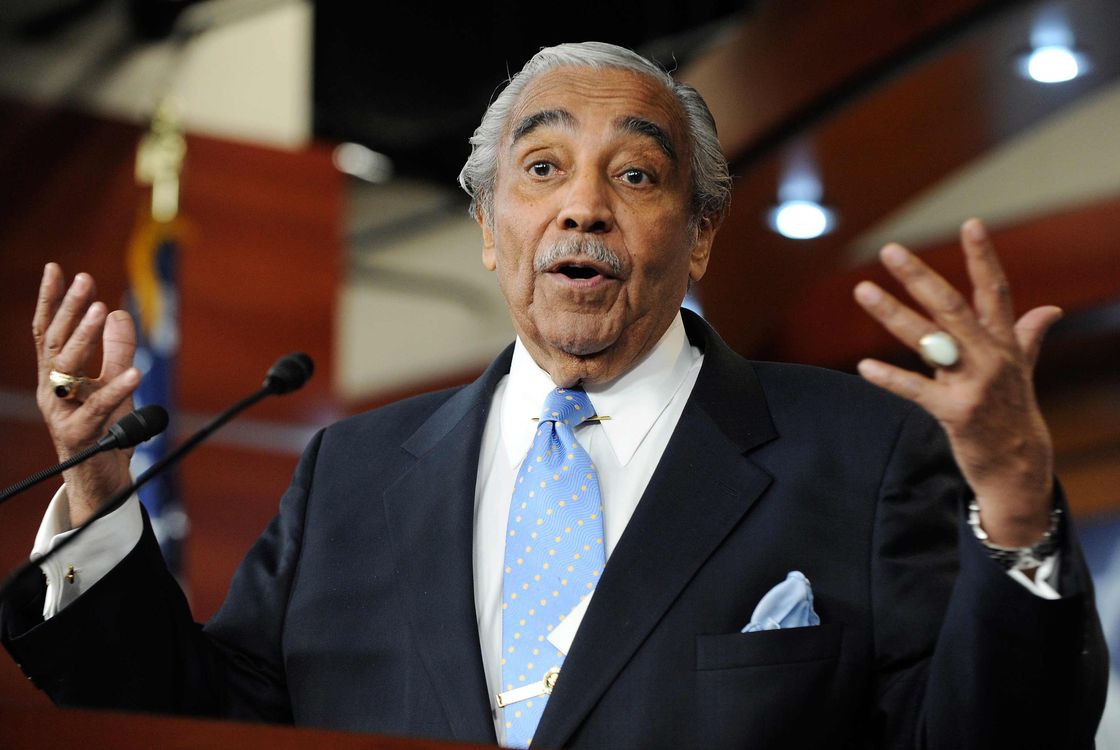
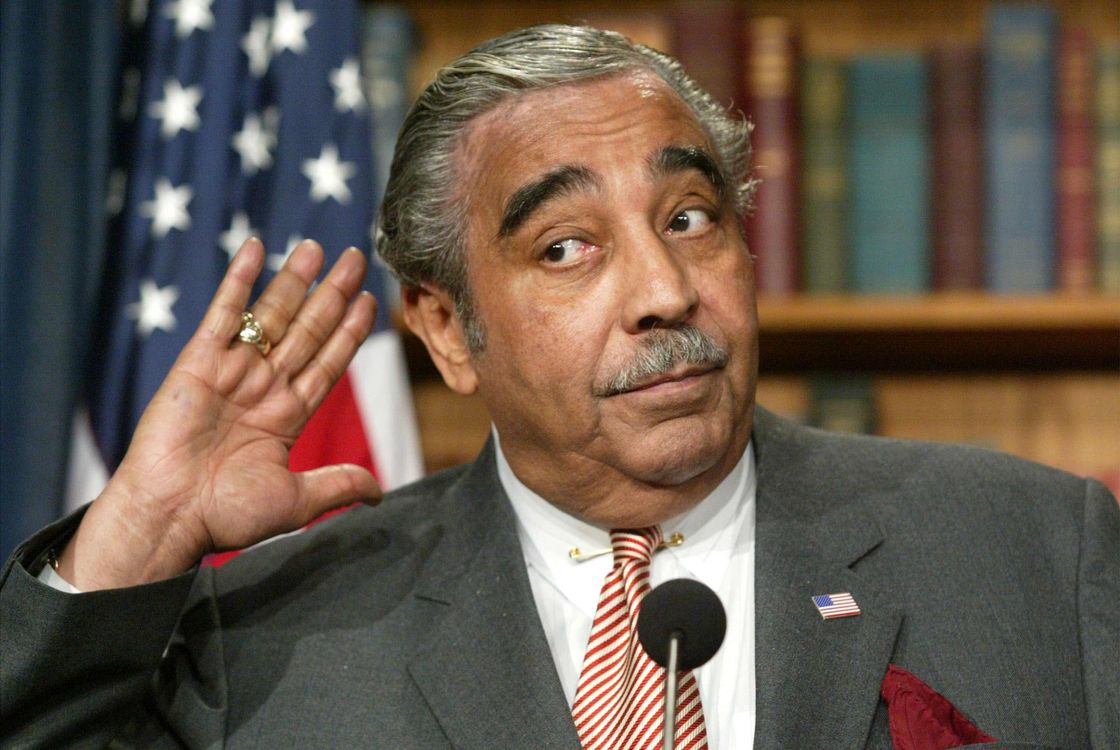
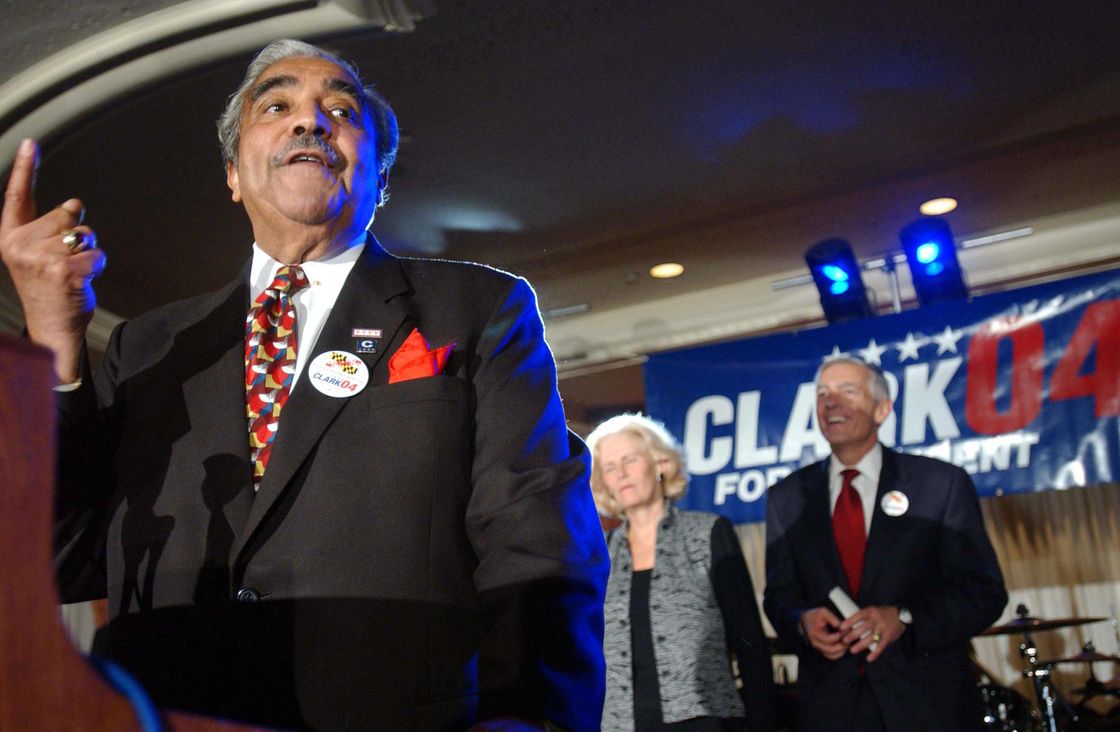
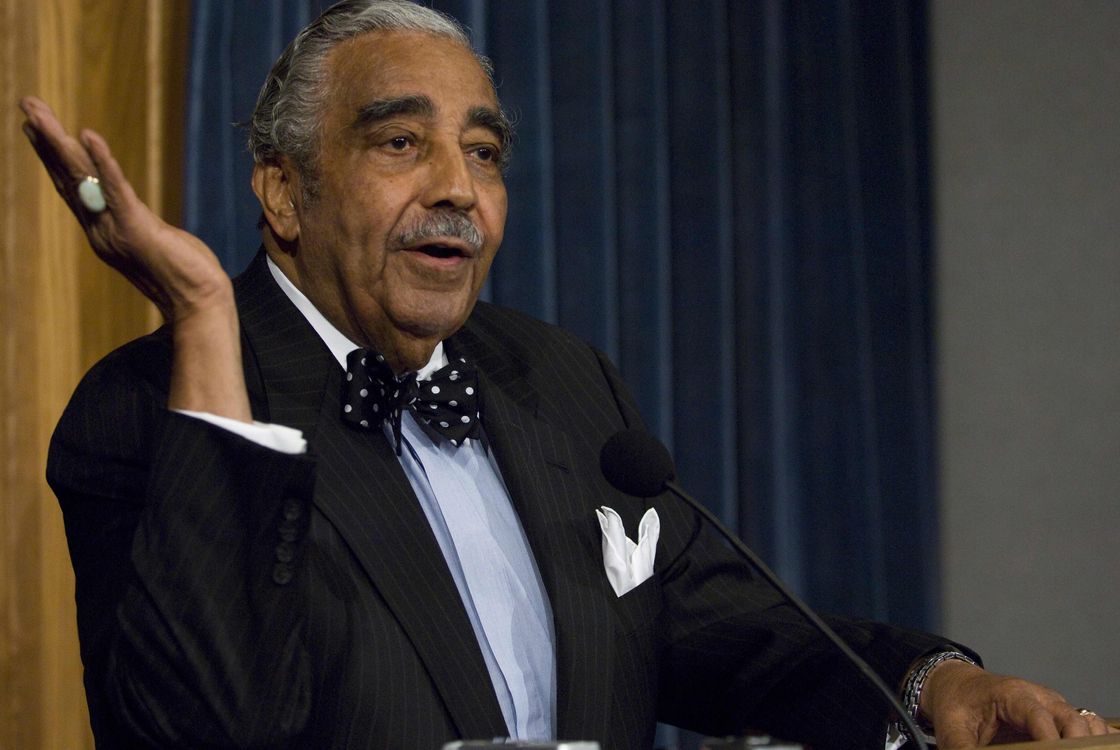
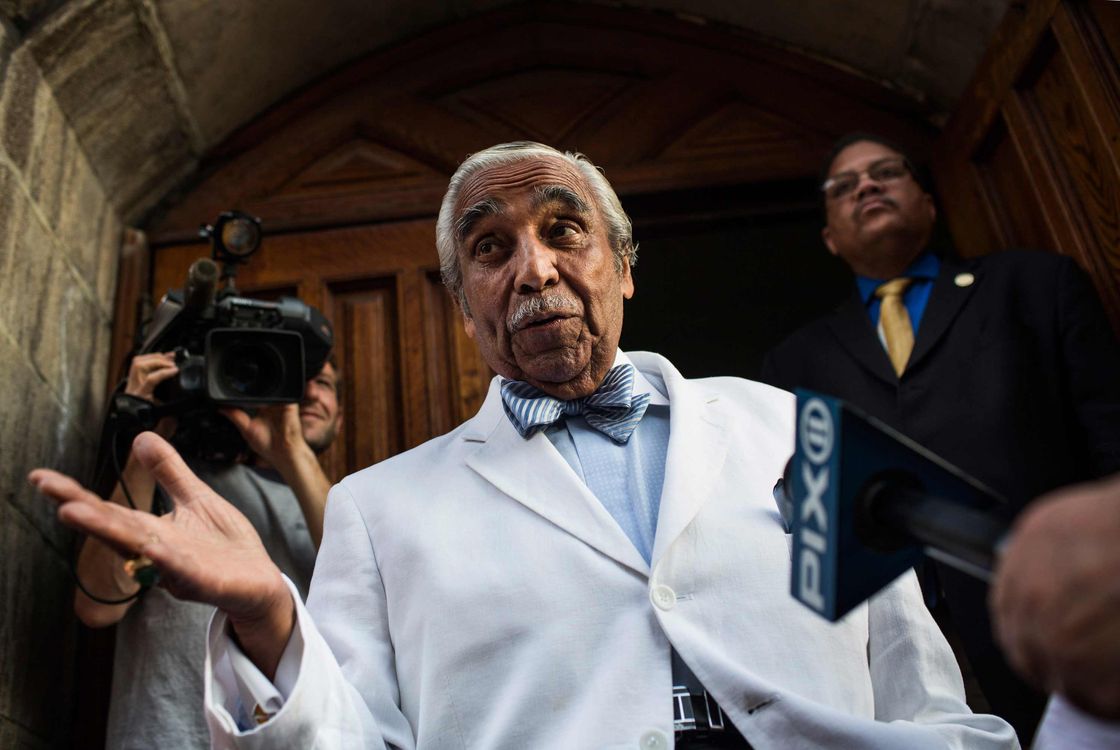





 Benjamin "He decided to go political early, which is unfortunate," says Sen. Thomas Libous.
Benjamin "He decided to go political early, which is unfortunate," says Sen. Thomas Libous.